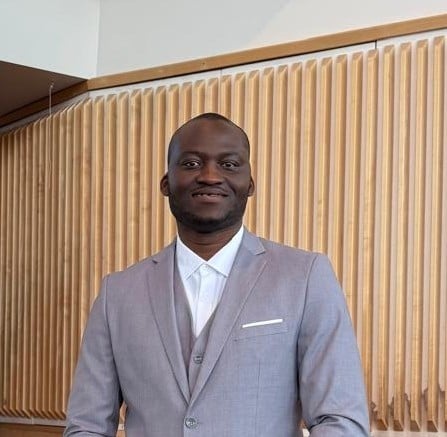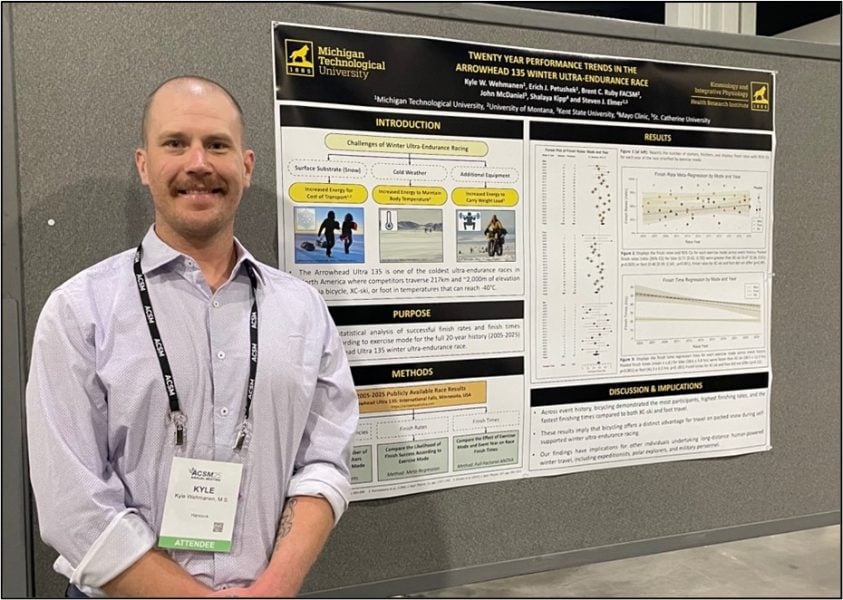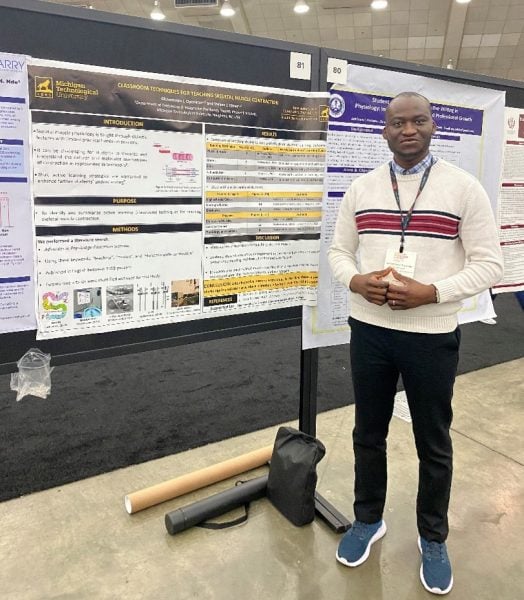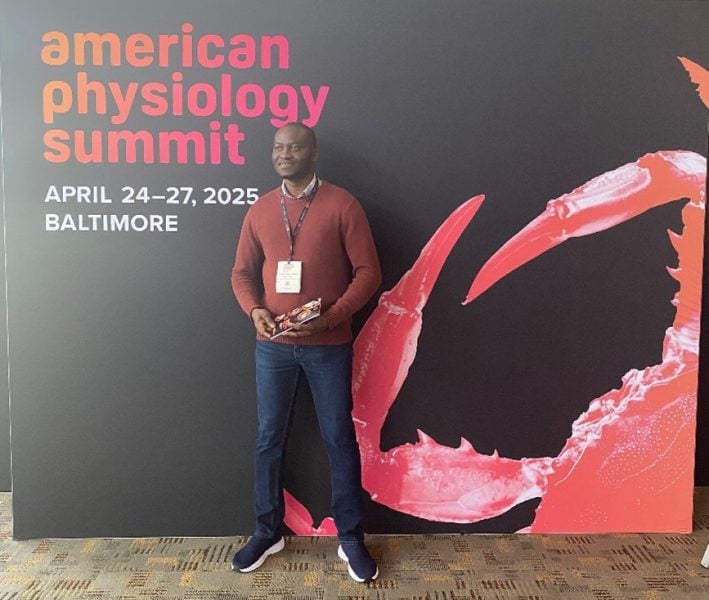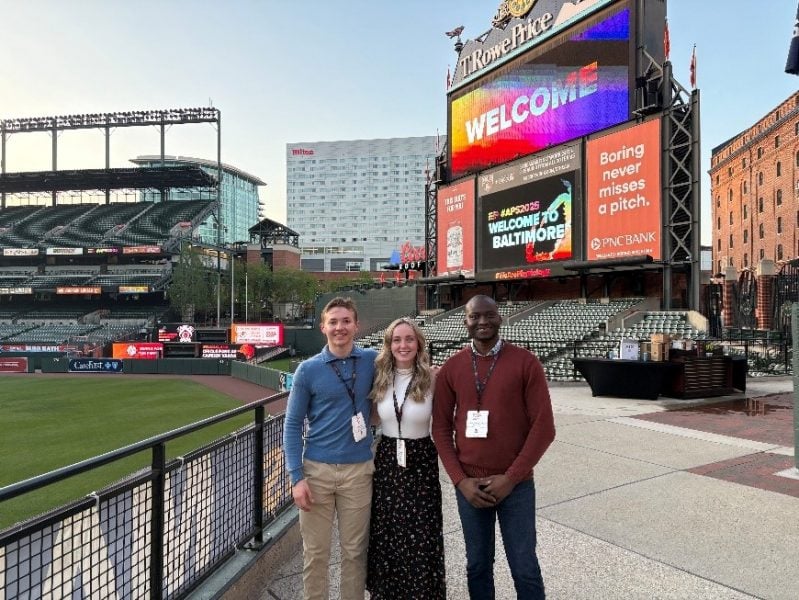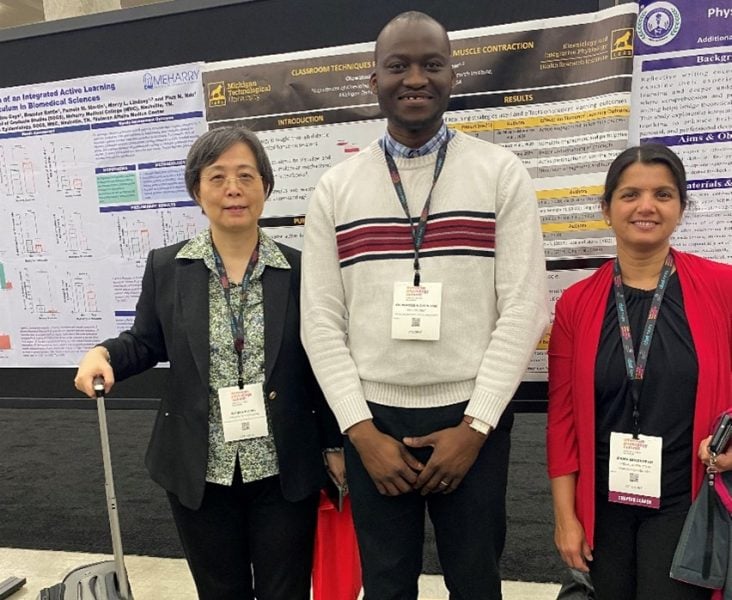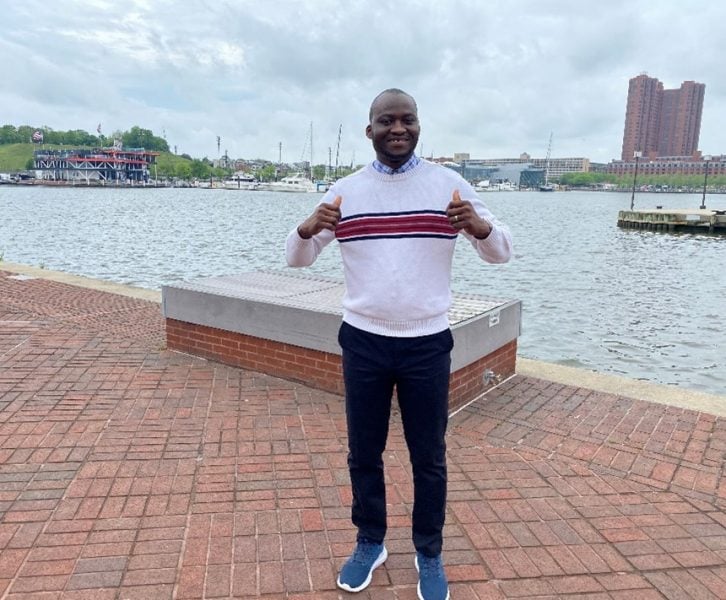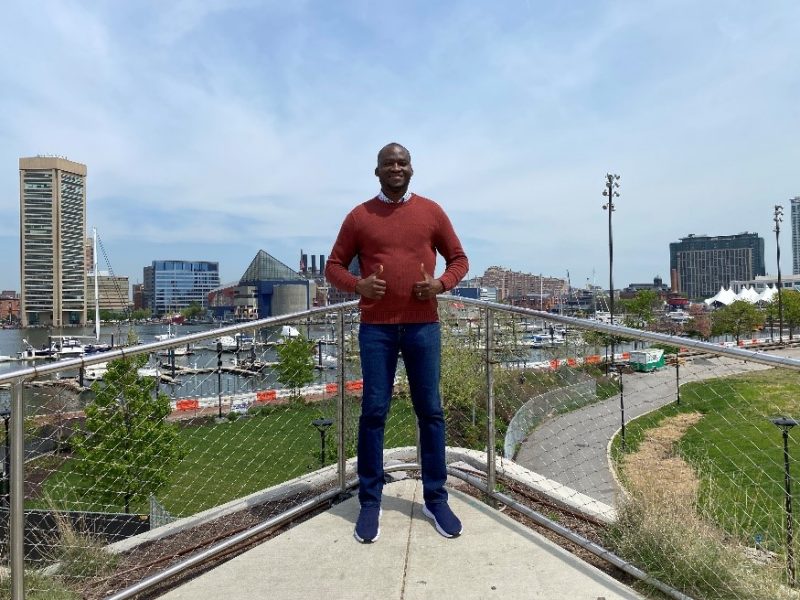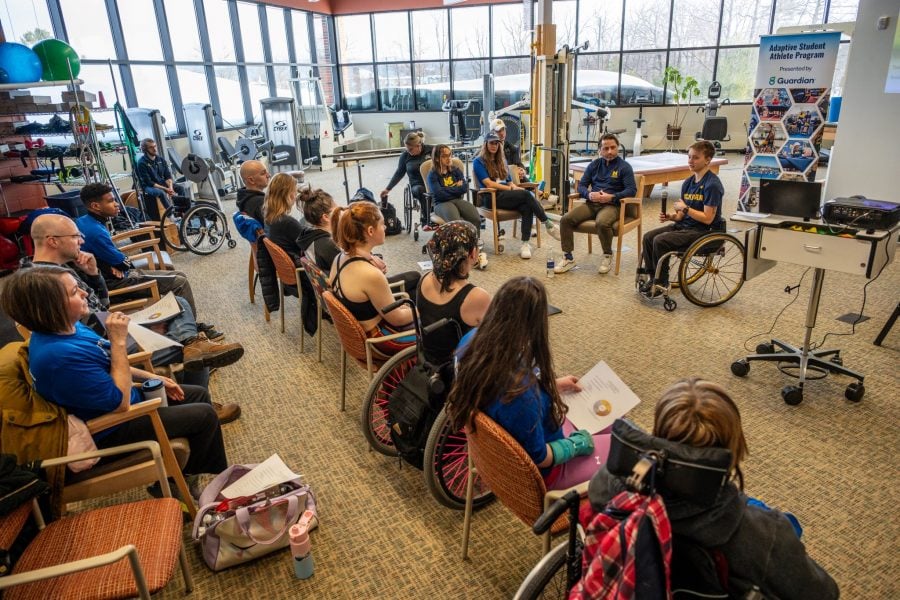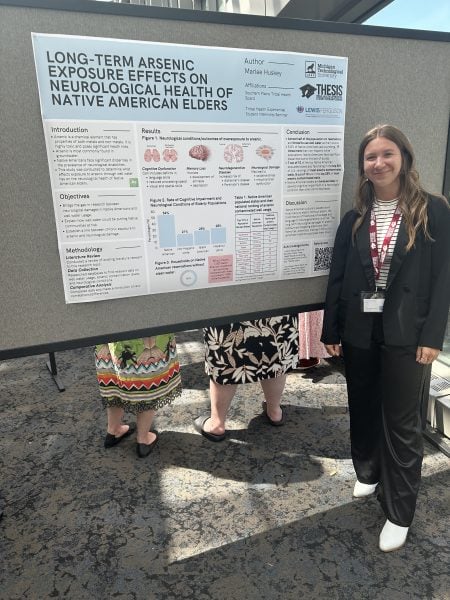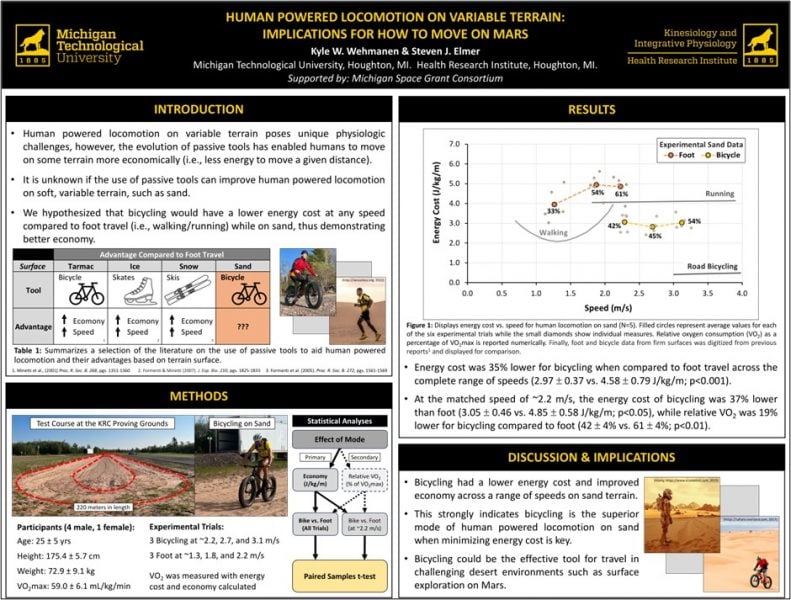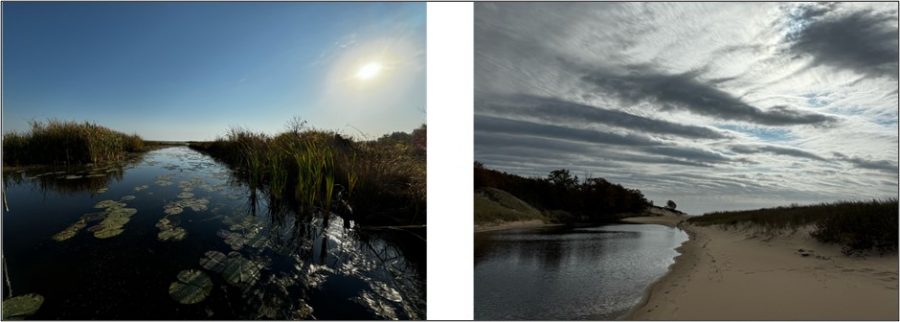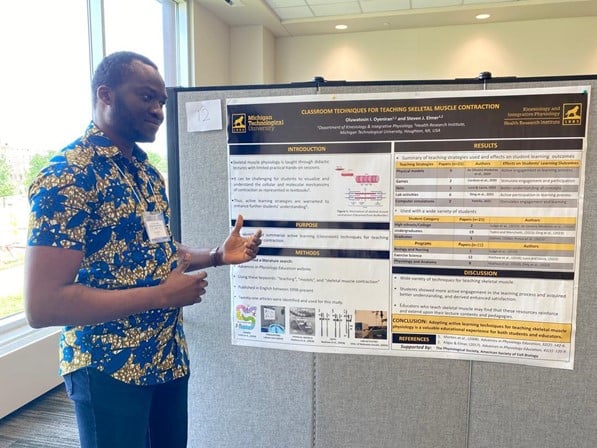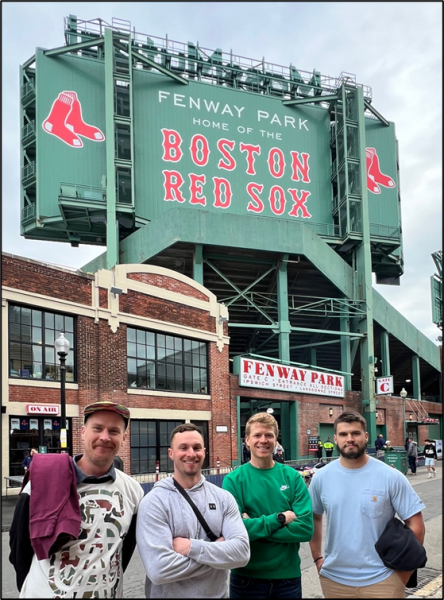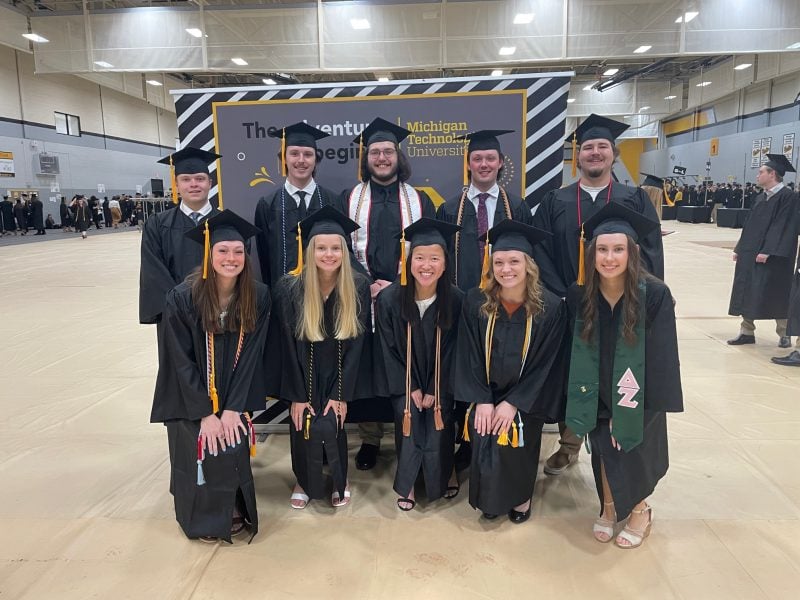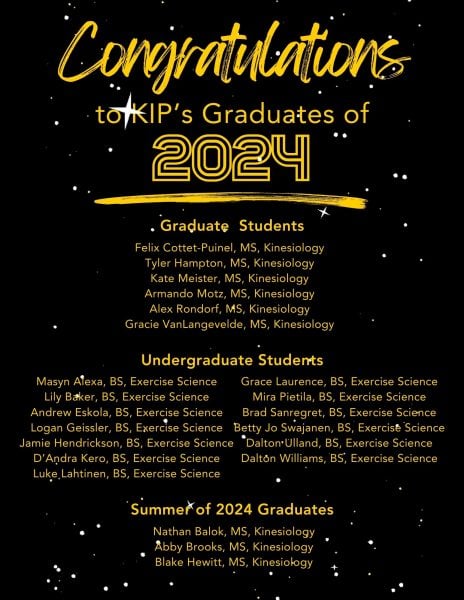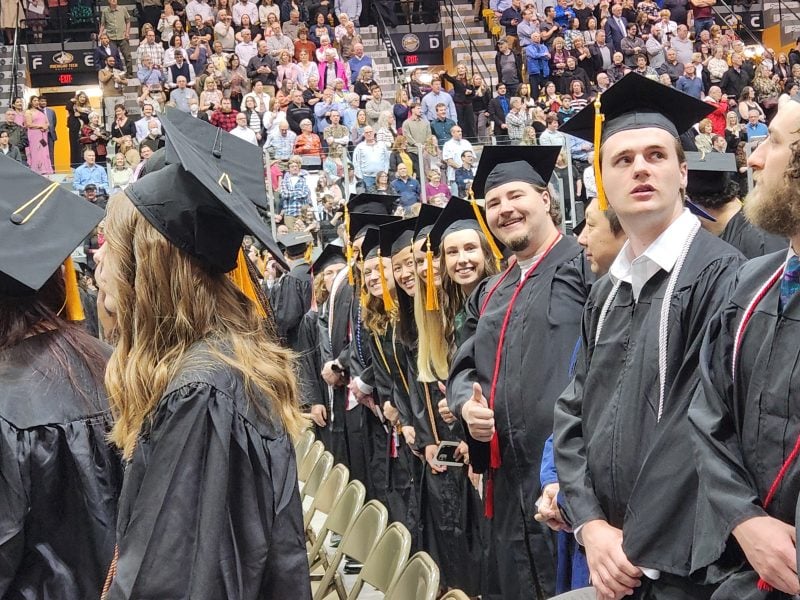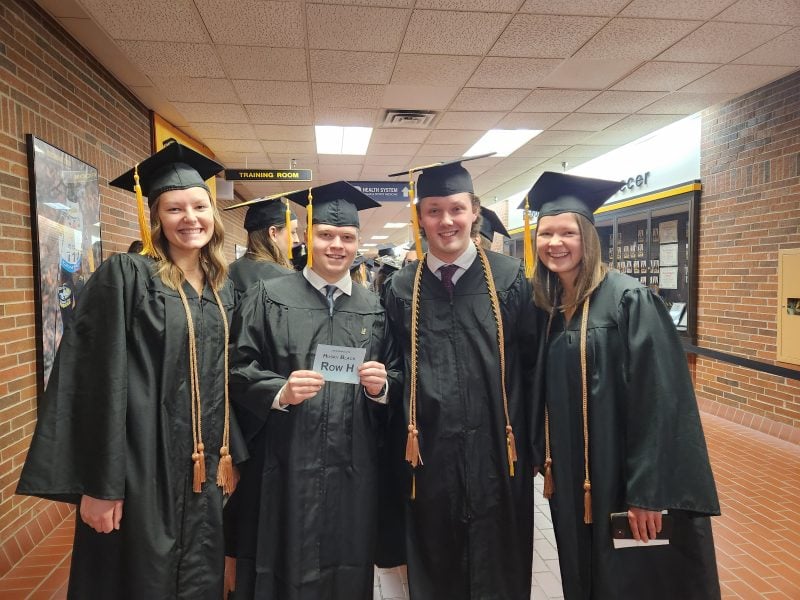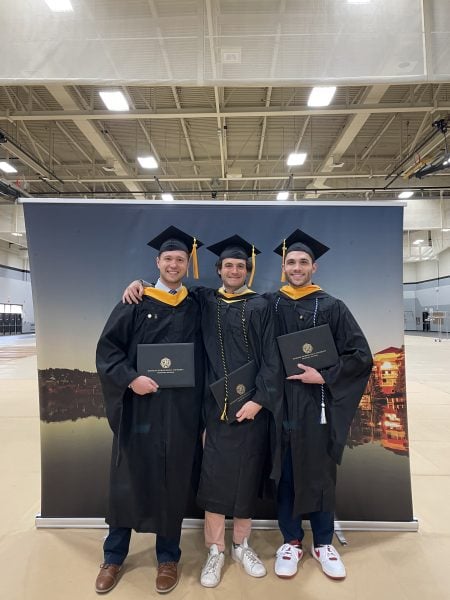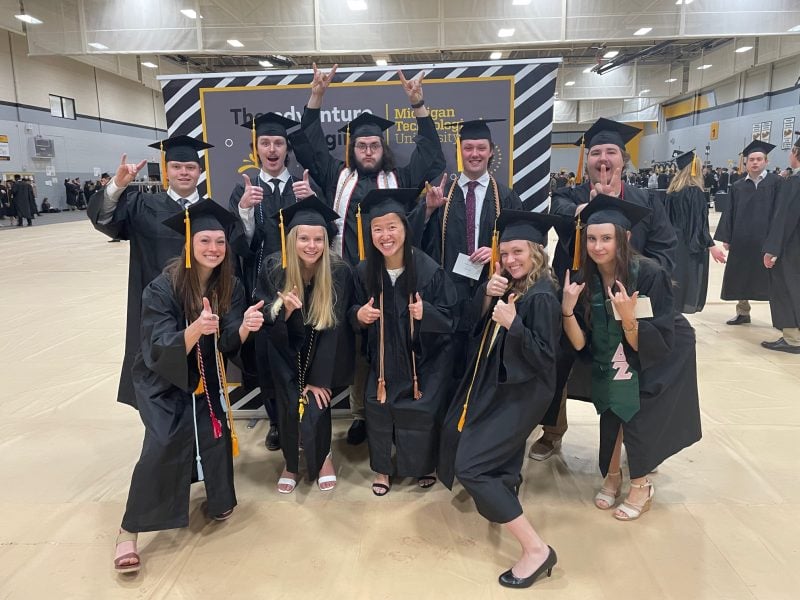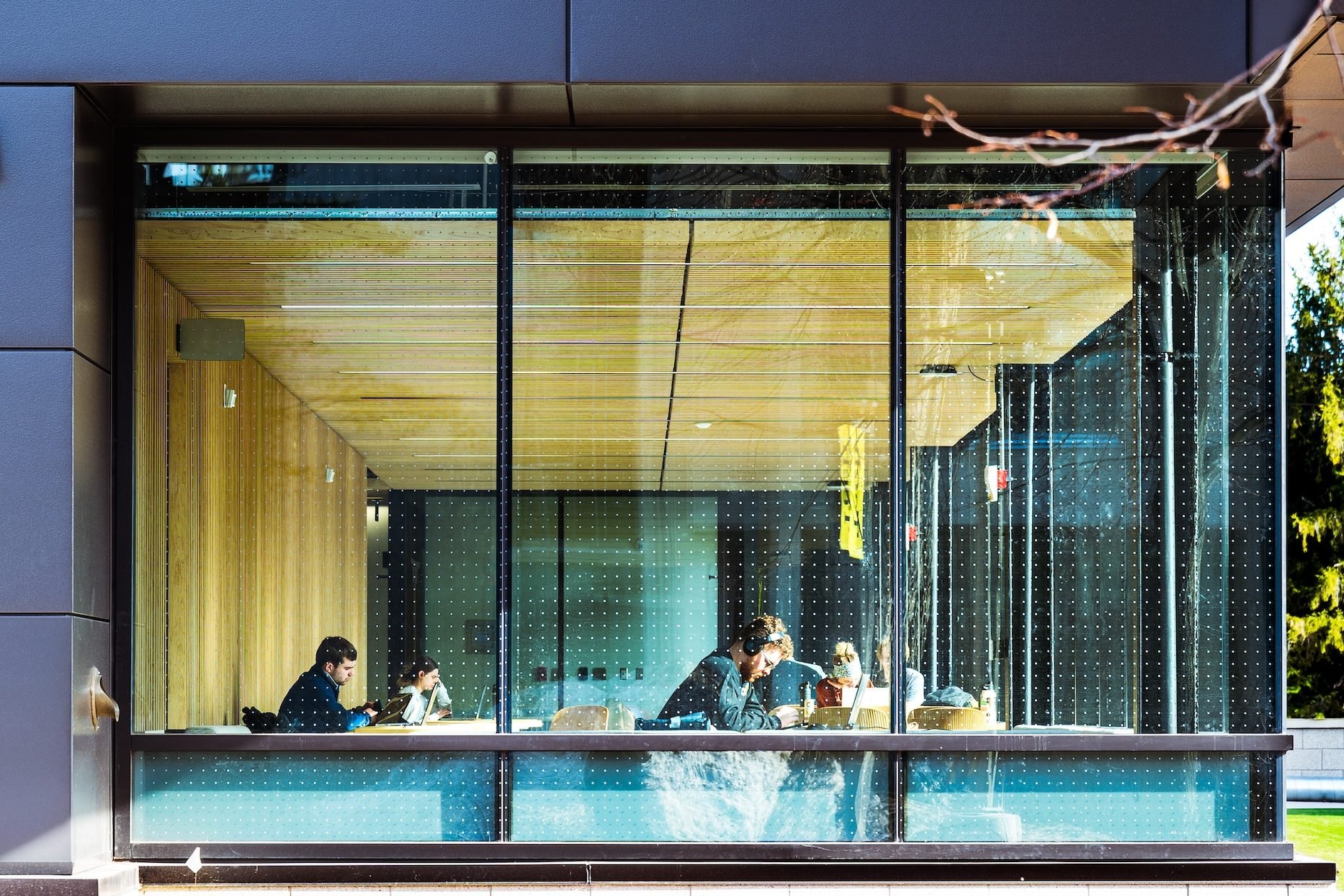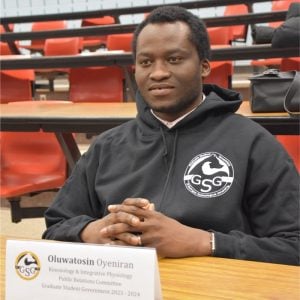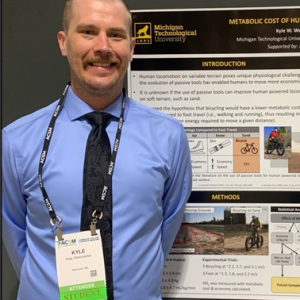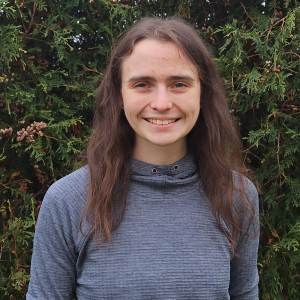Oluwatosin Oyeniran, a doctoral student in Integrative Physiology, has been elected to
serve as Vice President of the Michigan Technological University Graduate Student
Government (GSG) for the 2025–2026 academic year.
In this capacity, he supports the President in fulfilling the organization’s mission and
assumes key leadership responsibilities as necessary. He also spearheads targeted
initiatives designed to enhance graduate student experience while ensuring continuity
and effective governance within the GSG.
Oyeniran’s engagement with graduate student governance began in February 2024,
when he was elected as the departmental representative for Kinesiology and Integrative
Physiology. In April 2024, he was further elected to the GSG Executive Board as
Research Chair, a role in which he served before being re-elected by the graduate
student body to his current position as Vice President in April 2025.
His one-year term as Vice President extends from May 1, 2025, through April 30, 2026.
